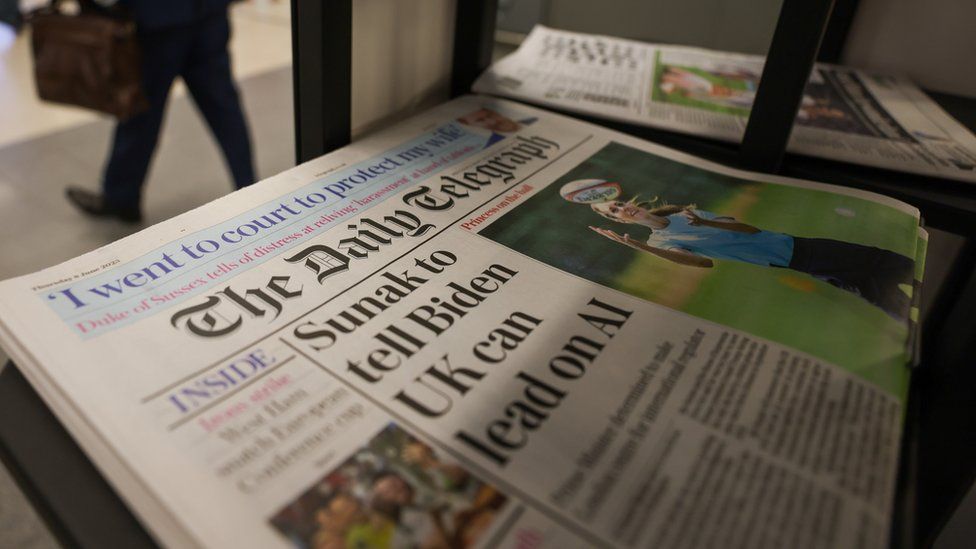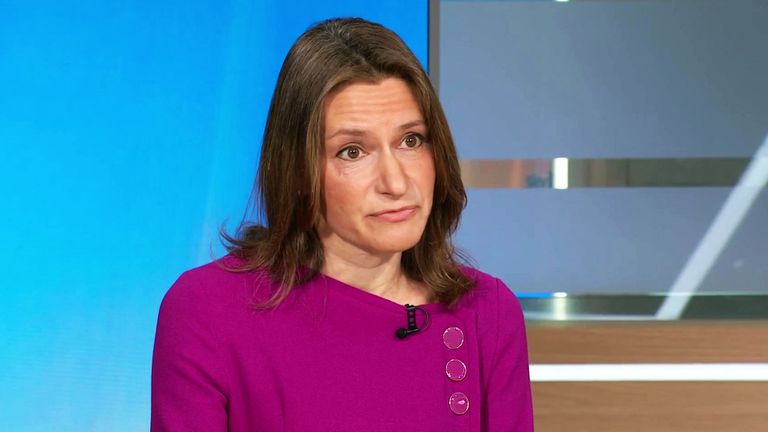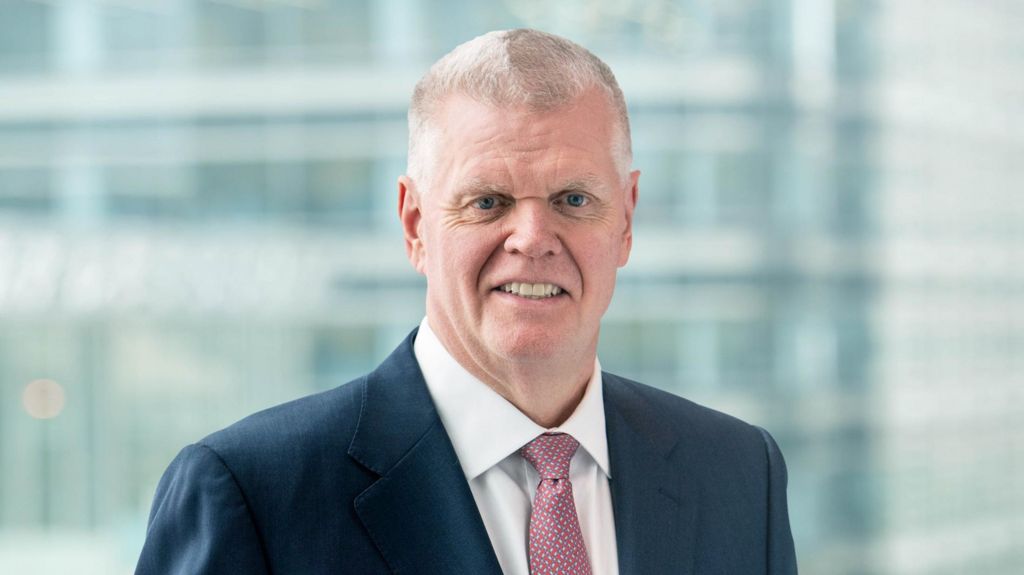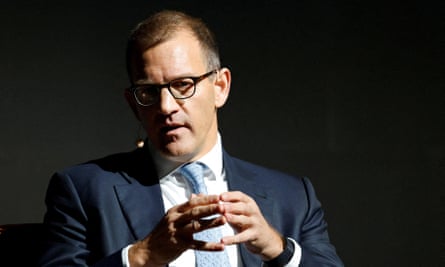A tale of a chief executive about to join a high-profile British company has gone down in City folklore.
Before taking the reins, a trusted advisor asks him the rather awkward question of how much he thought he should be paid.
'How much do you think I can get away with?' came the haughty reply.
It's an intriguing insight into the entitled, self-serving mindset that still prevails in some of Britain's boardrooms, despite decades of efforts by campaigners to curb 'fat cat' pay and a cost-of-living squeeze that has hit households.
The number of leading companies pushing for pay rises for their leaders has jumped even after they trousered an average of £4.5 million, a recent study revealed.
The analysis by business consultancy Deloitte found that 16 FTSE 100 companies are looking to revamp their pay policies – with nine of them having 'radical' plans to boost their boss's pay this year, compared to four previously.
'Many of these companies have a significant US footprint and cite the disparity in pay levels between the UK and US as a challenge when competing for and retaining senior talent in a global marketplace,' said Deloitte partner Mitul Shah.
But are British-based bosses really underpaid? And is there any evidence that more lucrative deals on offer across the Atlantic are causing an executive exodus of top talent?
To find out, The Mail on Sunday compared the pay of chief executives from leading firms on both sides of the pond.
We found that US bosses generally earn more than their British counterparts but the gap is not always that big, especially when stock market valuations are considered.
Charles Woodburn at BAE Systems took home £13.5 million last year – nearly £5 million less that the boss of Lockheed Martin. But the US defence contractor is worth more than twice as much as BAE based on their respective share prices.
The same is true in the oil and gas sector where Shell's Wael Sawan recently joined the growing chorus of bosses threatening to up sticks and leave London. He and BP's Murray Auchincloss would appear to be paid a pittance compared to their peers at Exxon and Chevron – until you realise that investors value shares in the US energy giants much more.
Pascal Soriot, chief executive of pharmaceuticals giant AstraZeneca, once complained that he was 'the lowest-paid chief executive in the whole industry'.
He has been playing catch-up ever since and is now Britain's highest paid boss, earning £16.9 million last year. Soriot still lags the likes of his US counterpart at Eli Lilly but a recent analysis by the Financial Times put him in the middle of the pack of 'Big Pharma' pay. That may explain why more than a third of AZ's shareholders this month opposed plans to give him a bumper pay rise.
Experts say pay disparities exist because US bosses are rewarded much more in shares than salary, but that comes with risks.
'The danger of packages which focus too heavily on share price performance is that they can lead to short-term thinking,' says Russ Mould of investment firm AJ Bell.
The average tenure of a FTSE 100 boss is just over five years, he notes.
'It is not hard to cut costs or make an acquisition to boost short-term income – and perhaps the share price,' he adds. Another reason that American bosses are paid more might be because they are better managers.
Among those leading calls to pay bosses more is Rupert Soames, president of the Confederation of British Industry lobby group.
He has dubbed many companies in the FTSE 100 'Brilos' – 'British in Listing Only' – because most of their revenues come from overseas. As chairman of Smith & Nephew, Soames is busy urging shareholders to give chief executive Deepak Nath a huge pay rise at the medical equipment group's annual meeting this week.
It is true that Nath earns a lot less than his peer at Stryker. But that may be because investors rate the US rival more highly, giving it a stock market price tag more than ten times that of Smith & Nephew.
Also on the warpath is Julia Hoggett. The London Stock Exchange chief executive has warned that a 'lack of a level playing field' is driving a brain drain from the City to New York and beyond. Another showdown occurred earlier this week when investors backed plans to more than double the pay of her boss, David Schwimmer, to £13.2 million.
That has put him on a par with Jeffrey Sprecher, who runs the New York Stock Exchange owner Intercontinental Exchange.
Companies such as chipmaker Arm Holdings, plumbing giant Ferguson and Tarmac-owner CRH already have moved their main listing to Wall Street.
Executive pay is higher in the US – but so too is pay inequality. Whereas the typical FTSE 100 boss earns 109 times more than an employee's average pay, the ratio in the US for the top 500 firms is 272 times.
But it is often forgotten that US bosses also wield much more power in the boardroom than their UK peers. They usually combine the role of chief executive and chairman – something frowned upon here. There is also scant evidence of an active transfer market in disgruntled UK executives heading west for big bucks.
Perhaps the most successful British-born executive in the US is Jane Fraser but she rose through the ranks before taking over at investment bank Citigroup.
It is also significant that the list of highest-paid bosses of British companies is dominated by foreigners. That suggests London is still a magnet for attracting and retaining footloose global executives – whatever the pay.
On that measure at least, reports of the City's demise as a leading financial centre look premature.
Adblock test (Why?)
https://news.google.com/rss/articles/CBMirgFodHRwczovL3d3dy50aGlzaXNtb25leS5jby51ay9tb25leS9tYXJrZXRzL2FydGljbGUtMTMzNTY4ODMvRlRTRS0xMDAtY2hpZWZzLWNsYWltLWhhcmQtY29tcGFyZWQtU3RhdGVzLWFuYWx5c2lzLXN1Z2dlc3RzLWRpZmZlcmVudC1zdG9yeS1Ccml0aXNoLWJvc3Nlcy1SRUFMTFktdW5kZXJwYWlkLmh0bWzSAbIBaHR0cHM6Ly93d3cudGhpc2lzbW9uZXkuY28udWsvbW9uZXkvbWFya2V0cy9hcnRpY2xlLTEzMzU2ODgzL2FtcC9GVFNFLTEwMC1jaGllZnMtY2xhaW0taGFyZC1jb21wYXJlZC1TdGF0ZXMtYW5hbHlzaXMtc3VnZ2VzdHMtZGlmZmVyZW50LXN0b3J5LUJyaXRpc2gtYm9zc2VzLVJFQUxMWS11bmRlcnBhaWQuaHRtbA?oc=5
2024-04-27 20:52:47Z
CBMirgFodHRwczovL3d3dy50aGlzaXNtb25leS5jby51ay9tb25leS9tYXJrZXRzL2FydGljbGUtMTMzNTY4ODMvRlRTRS0xMDAtY2hpZWZzLWNsYWltLWhhcmQtY29tcGFyZWQtU3RhdGVzLWFuYWx5c2lzLXN1Z2dlc3RzLWRpZmZlcmVudC1zdG9yeS1Ccml0aXNoLWJvc3Nlcy1SRUFMTFktdW5kZXJwYWlkLmh0bWzSAbIBaHR0cHM6Ly93d3cudGhpc2lzbW9uZXkuY28udWsvbW9uZXkvbWFya2V0cy9hcnRpY2xlLTEzMzU2ODgzL2FtcC9GVFNFLTEwMC1jaGllZnMtY2xhaW0taGFyZC1jb21wYXJlZC1TdGF0ZXMtYW5hbHlzaXMtc3VnZ2VzdHMtZGlmZmVyZW50LXN0b3J5LUJyaXRpc2gtYm9zc2VzLVJFQUxMWS11bmRlcnBhaWQuaHRtbA













